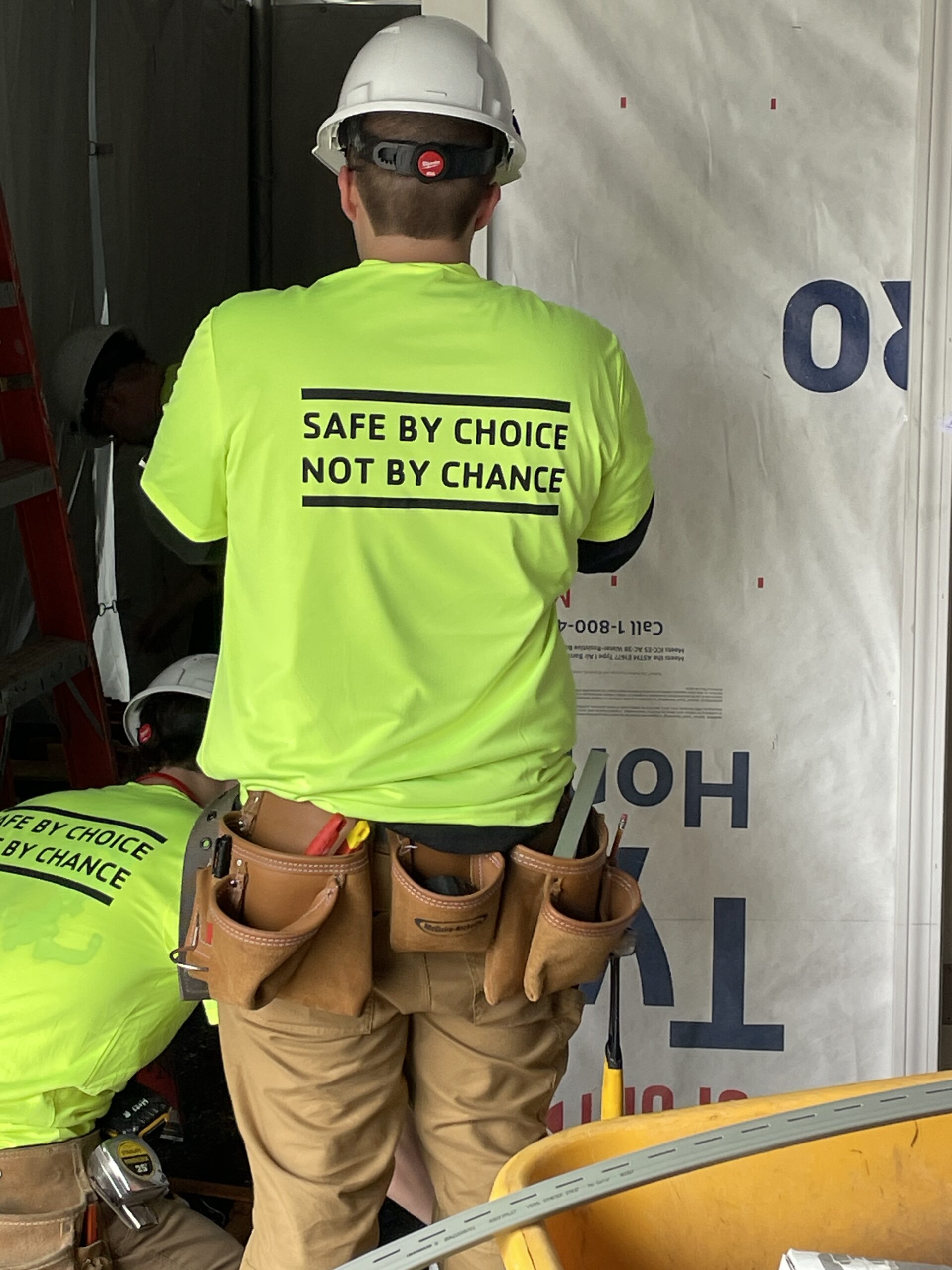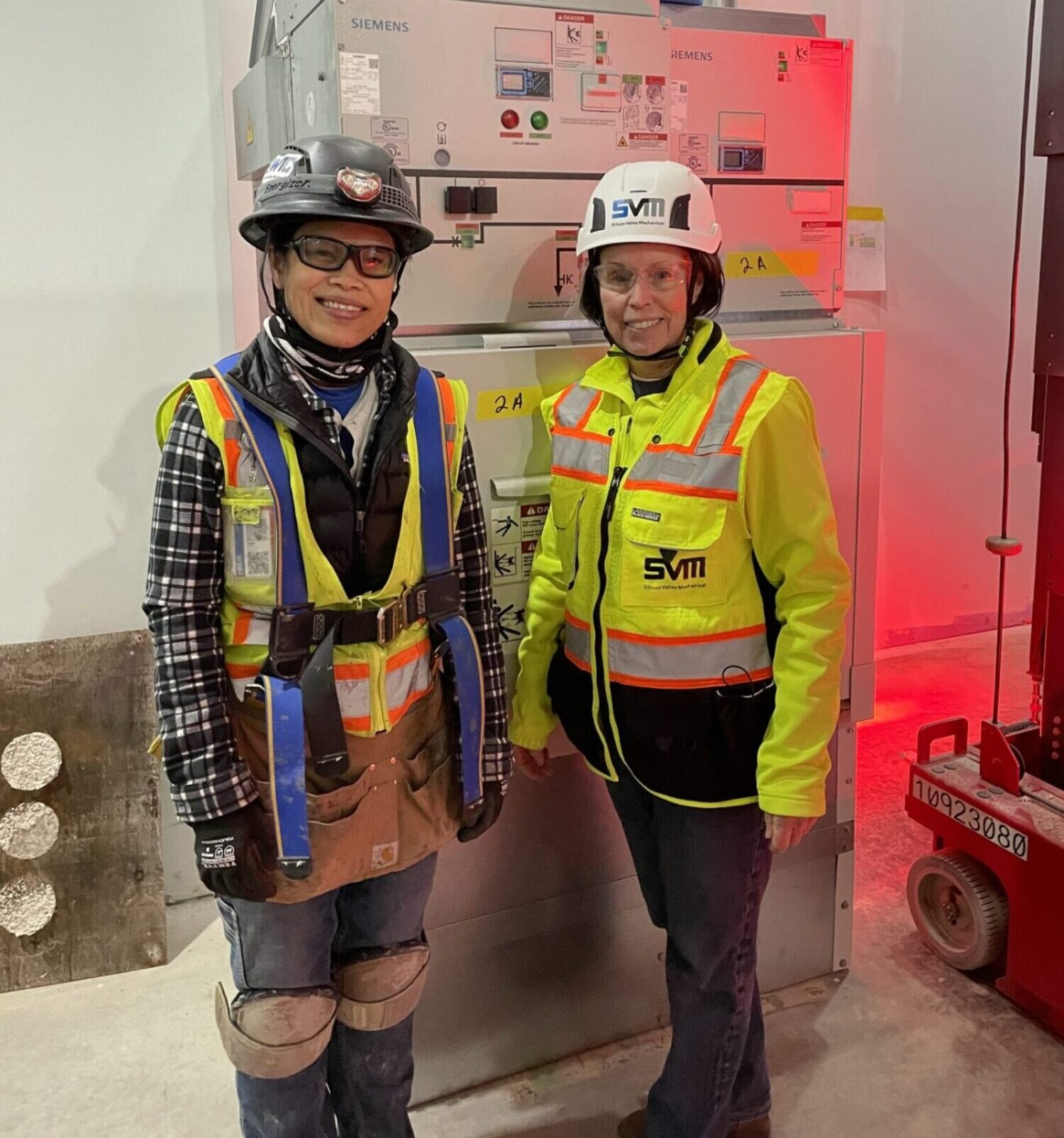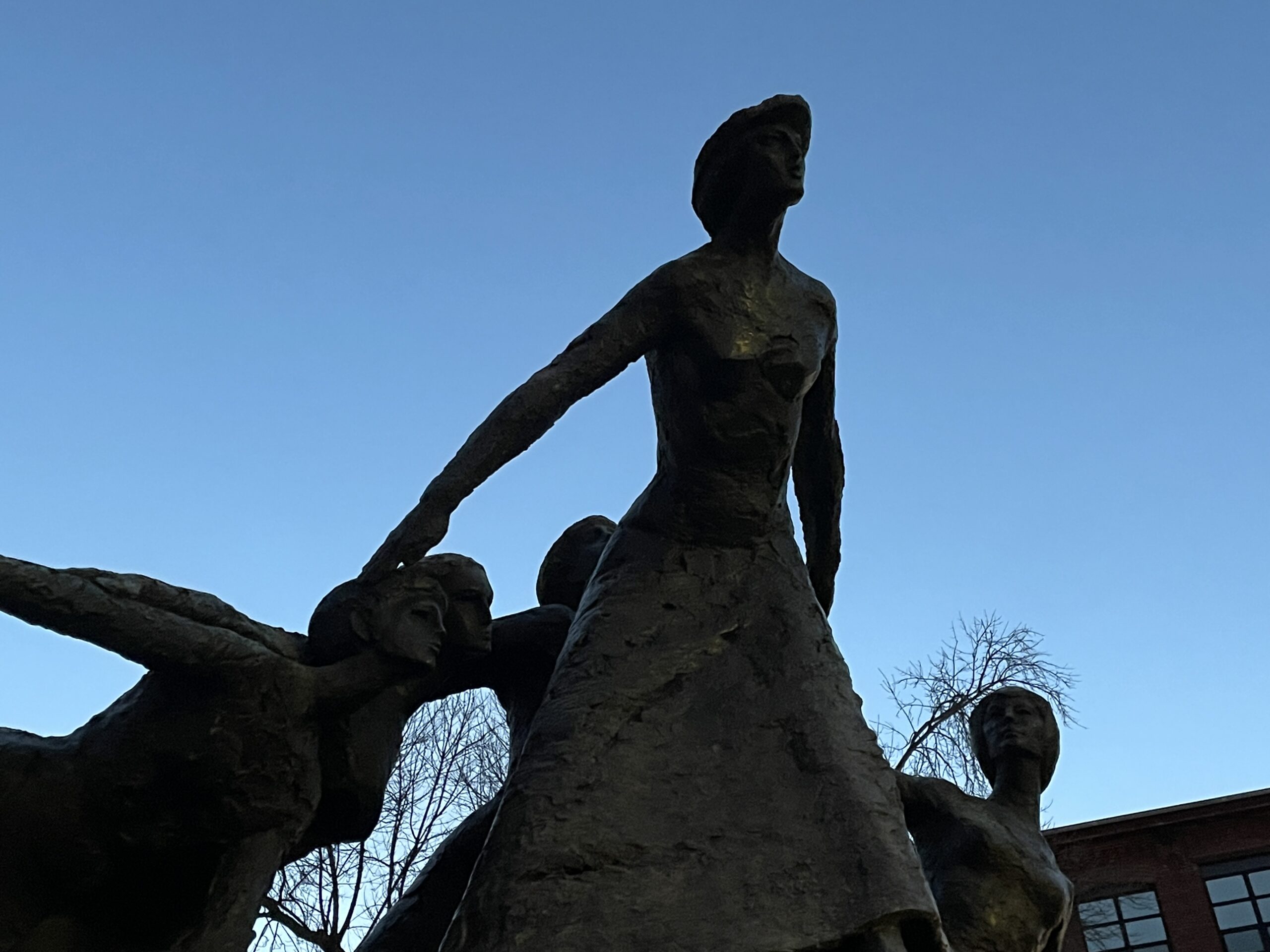May 2025
A college friend who lives in Texas called me the other day. As soon as I said hello, she asked “Is everything all right?” Everything was fine, I assured her. “Oh, that’s good. I didn’t receive The Tidal Pool last month, and just wanted to check in.”
It’s nice to know that friends keep tabs on me, and that my newsletter is a source. A slight technical issue caused me to skip last month, but here I am now, hoping all is good with you.
Despite our country’s political turmoil, I have continued plugging away at research and drafting for my book about women in the trades. Some of the research has been historical, digging up information about remarkable women who are forebearers of today’s tradeswomen. But last Friday, I got a glimpse of the future while attending the Massachusetts state championship of Skills USA.
In case you don’t know about Skills, it is a nationwide organization that promotes technical and vocational education. It grounds its work on three pillars: integrating technical skills with academics, helping students develop workplace skills, and inspiring them to enhance personal skills. Among other activities, Skills hosts student competitions, and last week’s state championship took place at Blackstone Valley Regional Vocational Technical High School in Upton, Massachusetts.
I first heard about Skills when my son was in high school. He was passionate about diesel power and competed in that category, demonstrating his knowledge of diesel engines and big rig safety protocols before a truck goes out on the road. He was a competitor for two years, and a judge in the third.
The current student president of Skills USA is Kallie Allen, a senior at BVT. A few months ago, she and I met for coffee, and then she arranged for BVT’s vocational director to give me a tour of the school. I had the chance to chat with a few students and saw the 18 shops where a wide range of technical skills are taught, from advanced manufacturing and fabrication, engineering, multimedia communications to plumbing. The school’s program runs on alternating weeks. One week, a student will be in the shop learning technical skills, and the next week will be in an academic classroom. On the tour, I was struck by the level of student engagement. I didn’t see kids slouching in the back of the room or looking surly, which I distinctly remember from my days in school. They seemed happy to be doing their work. About two-thirds of the graduates go to either a technical or a four-year college.
Kallie’s field is bio-tech. As a senior, she spends shop weeks interning at Charles River Lab, and academic weeks studying English, calculus, psychology and biology – at the advanced placement level. To say I am impressed would be an understatement.
On Friday, I stood in line with hundreds of students, waiting to enter the school. Students from all over the state were pouring in with toolboxes, laptops, audio equipment, hair styling products, cooking knives, hard hats and other essentials for the day. Skills officers wore red blazers; others wore clothing appropriate for their trade. I heard their banter and could feel their excitement.
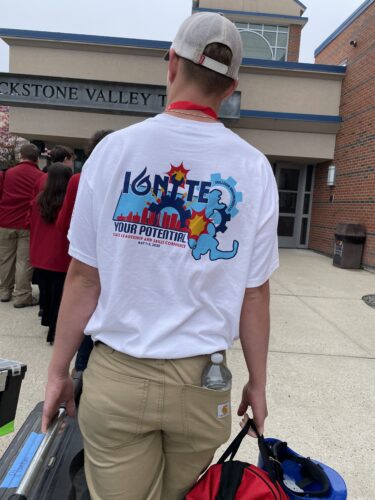
Kallie kicked off the day at the podium, welcoming everyone and presiding over a ribbon cutting.
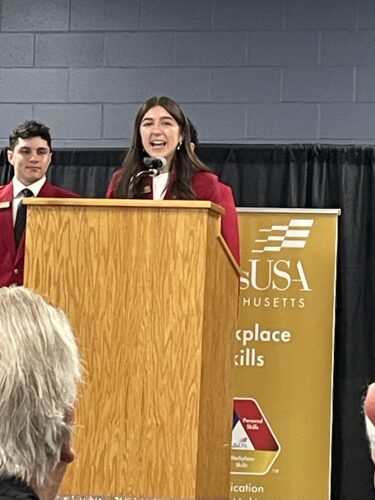
Then the competitions began, with students deploying their skills in the various shops. Who could build the best shed in the allotted time? Who could operate a robot in a manufacturing setting? Who was the most proficient draftsperson? Who could gauge the efficiency of a cooling system’s operation?
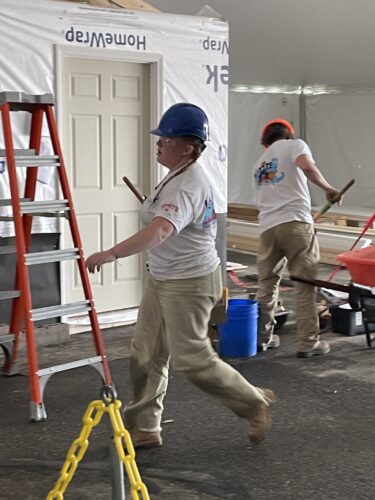
As I visited the shops, I saw technology everywhere. A leaky faucet, of course, requires a plumber with a wrench, but many aspects of the trades are undergoing a transformation. Future workers have to be savvy, and these students certainly seemed to be. They use simulators to learn how to operate heavy equipment, laptops to control robots, code to run manufacturing machines. And that’s just a tiny sampling of the technology I saw in use. Undoubtedly, much more is to come.
Given the skills these students already have, and their obvious enthusiasm for the pathways they are on, I believe they are well-positioned to adapt to whatever comes next. I ended the day feeling optimistic that students like the ones I saw will do well for themselves, filling critical needs in the labor market and achieving financial success. Good for them and good for us.

